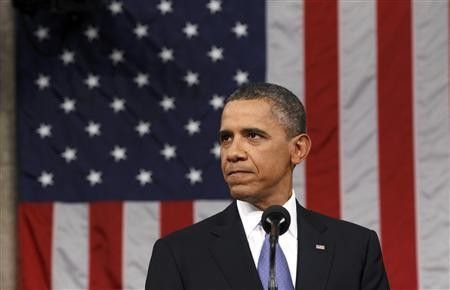Obama Jobs Speech: How the President is Passing the Buck
a

President Barack Obama made a savvy play with his jobs speech proposal, if one considers his personal political hide. America's unemployment problem has gone on too long, and the nation is looking to Washington, and the president, to do something about it.
So Obama drew up a economic plan that has a big price tag -- $447 billion -- urging Republicans and Congress to act immediately on it.
Later, Obama said, he'll release a plan for how to pay for the costly package. And, Obama said he'll ask for the newly-formed congressional super committee to formulate a plan to pay for his broad economic proposals he wants swift action on.
Already, some Republicans are saying Obama is merely passing the buck, and they make a good point.
The super committee was formed as part of the deal to raise the debt ceiling, and the bipartisan 12-member group is already facing the challenge of finding $1.5 trillion more in federal budget cuts by Thanksgiving. Already, we know from debt ceiling talks that bipartisan isn't working so well these days in Washington, and with a presidential race cranking up, it's only likely to get worse.
If that's possible.
Republican Rep. Jeb Hensarling of Texas, a co-chair of the super committee, effectively said after Obama's speech that passing the buck on the jobs plan costs won't work.
His proposal would make the already-arduous challenge of finding bipartisan agreement on deficit reduction nearly impossible, removing our options for deficit reduction for a plan that won't reduce the deficit by one penny, Hensarling said in a statement following Mr. Obama's speech. It's not the role of this committee to spend more money we don't have on jobs we don't get.
And that's the very problem with Obama's jobs plan across the board -- he's attempting to pass the buck, placing the burden on lawmakers who weren't involved in drawing up the costly plan and to American citizens who will have to pay for it one way or another when they don't have the money.
The plan also comes with high risks. The federal government found during previous stimulus spending and bailout packages that not all money spent turns into jobs. Two years after the end of the recession, America's unemployment rate remains above nine percent while the federal budget deficit has soared above $14.5 trillion.
We have an unemployment epidemic, but we also have a federal spending epidemic. With his plan, Obama seems to be wanting to have his proverbial cake and eat it too -- saying we can spend and cut the deficit. He's just not exactly sure how that should happen, either. Or, he hasn't told us yet.
Either way, Obama just wants to pass that buck, telling a bipartisan committee to figure it out. But odds of that happening aren't good.
© Copyright IBTimes 2024. All rights reserved.





















